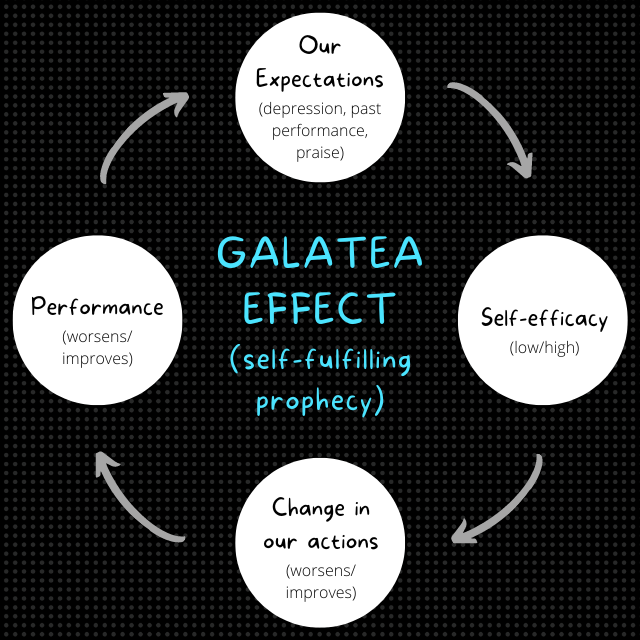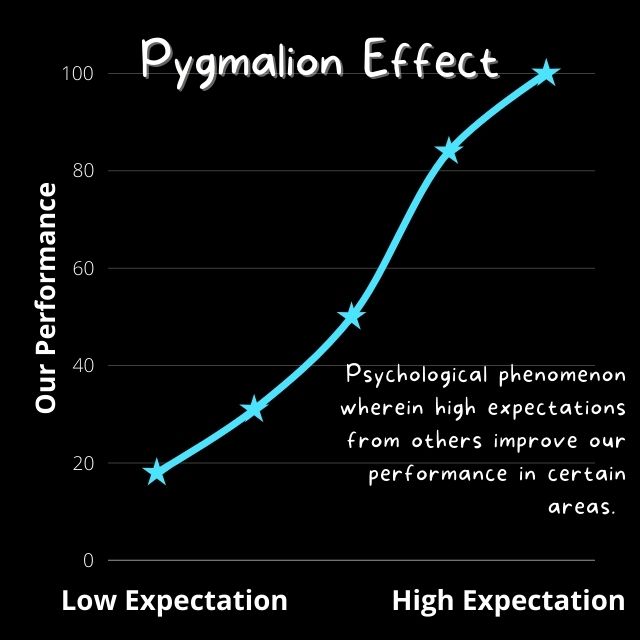Productivity hacks might not work if mental health problems are actively lowering your productivity. Problems at work can worsen mental health and mental health problems can lower productivity. I will focus on the latter here.

What are the mental health problems experienced by professionals?
The most common ones are:
- Burnout: Burnout is a physical and mental state of the body and brain giving up because it is overworked. Because of continuous stress and long hours of work[1], a person experiencing burnout is constantly tired, has lost motivation and focus, and no longer gains a sense of satisfaction from work. Burnout can start after continuous weeks and months of overwork and can take a few days to months to recover. A lot of work decisions like changing careers or jobs are made because of burnout, which eventually creates more job uncertainty.
- Depression: Depression is a state of low energy, low motivation, and neglect. Depressed professionals often come to work as a habit and have effectively stopped caring about their job. Some depressed professionals cannot get out of bed to continue work. Some fail to acknowledge even success and failure – they no longer care if they perform poorly or well. Since depression is multi-faceted and people experience it uniquely, it affects work in unique ways. Not all depressed professionals will lose productivity. Some would only find work meaningless. Some won’t be able to focus. When a job requires more decision-making and communication, depression leads to higher productivity losses.[2]
- Anxiety and confidence problems: Anxiety is a response to uncertainty and negative possibilities. Literally speaking, people get anxious when there is job uncertainty like layoffs or competition during interviews. But anxiety has a larger role to play within a job – confidence and competence problems based on performance evaluation and the overall success of a company. One can experience low confidence if a team undermines them. One can also experience low confidence if their decisions and skills are not valued. In some cases, the anxiety stems from self-reflection – knowing one’s skills are not adequate to perform well enough demotivates and leads to avoidance behavior like procrastination. Unrealistic performance pressure is a very common reason to develop self-esteem problems like not feeling good enough or constantly worrying about being replaced by someone who performs better.
Related: Simple on-job relaxation techniques to help with burnout.
The overall outcome is really on just 2 levels:
- Lack of meaning and purpose in the job. Depression often leads to feeling very little emotion and motivation, so the work which was once meaningful is no longer serving its purpose. Anxiety can create the problem of not fitting into the job’s demands, either through self-esteem and confidence problems or through rationalizing thoughts like “I am not cut out for this work.” or “This job is not me.”
- Feeling (and being) unable to work well enough to meet work demands. Mental health problems impair attention, motivation, memory, sleep, and performance, and even create long-lasting brain fog. So essentially, all the core aspects of productivity. Particularly, mental health problems lead to procrastination, which is the result of not handling difficult emotions about a task, your abilities, or meeting targets.
Depending on how intense these problems are, an employee will lose job satisfaction and interest in work. This creates secondary problems like re-training, probation periods, and harsh performance evaluations, which further increase depression (+ demotivation) and anxiety (+ low confidence and competence).
Taking care of mental health is a top priority. For employees and organizations.
Depression can disable a workforce. Depression involves an inaccurate self-assessment along with a loss of energy and motivation. So, productivity drops. In a practical sense, depression is a lack of mental and physical movement. At the superficial level, when a job needs you to get things done, it requires physical and mental movement, which gets sluggish with depression.
Another problem with depression and productivity is that depression almost always comes with low self-esteem and low self-efficacy. Let’s look at these terms. Self-esteem is one’s attitude toward oneself; it’s either positive, neutral, or negative. Low self-esteem is a negative attitude. Self-efficacy is one’s confidence in their skill and abilities. Depression and anxiety both compromise self-efficacy. Together, low self-esteem and self-efficacy create a pattern of feeling not good enough, having a lot of self-doubts, low confidence, an inferiority complex, and low expectations.
Low expectations from oneself are particularly damaging because of the Galatea effect[3] – if our faith in our skills/abilities is high, we have better performance and chances of success. If faith is low, we are less likely to succeed. Expectations here are not irrational, they are tied to self-efficacy. That means one has to have an accurate understanding of their skill level and how one can perform. So if depression creates a sense of inferiority or low faith in one’s ability, it is likely to lower performance.

The social opposite of this is also true, and that’s the Pygmalion effect[4]. Others’ expectations of our performance affect actual performance. If an employee or manager undermines you and thinks you are not likely to succeed, a self-fulfilling prophecy activates where your performance will get worse to match low expectations. Similarly, students whose teachers expect well from them end up performing well. Ideally, a healthy productivity culture at work should not play around with employees’ and employers’ expectations of each other and themselves. They should be realistic.

Anxiety can lower your productivity even further. For starters, anxious thoughts can intrude and interfere with productive thoughts. It can transport you to a different and unpleasant world. Anxiety also makes people extremely self-critical which leads to work that remains forever incomplete. People suffering from anxiety often judge their work too harshly and believe it is sub-par which itself becomes a hurdle for completion. Sometimes, anxiety makes you judge the yet-to-happen output poorly and that kills productivity before the work even begins.
Related: Learn to regulate destructive emotions to reduce their negative impact on your work output.
One destructive thought pattern is perfectionism[5]. Behind perfectionism, there is a thinly veiled negative self-judgment – “If I don’t make it perfect, it is bad work.” or “If my work isn’t spotless, I will be judged very harshly and I’ll feel incompetent). This is a cognitive distortion called black/white thinking. In most work scenarios, there is a minimum criterion, or minimum quality standard which is good enough in most cases. So perfectionism isn’t a realistic evaluation, it’s an anxiety response. If anxiety about how an employee is judged or evaluated, they may choose perfectionism, and because perfection is rarely achievable, there is little or no actual work output.
Does this have empirical support? Yes. Research has demonstrably shown that poor mental health is associated with lowered productivity[6] because of increased absenteeism (skipping work) and presenteeism (low performance when at work). For better emotional and cognitive work outcomes from the tasks you do[7], maintain your mental health.
It’s not just overall mental health; your mood affects productivity too. Happy people are more productive. Unhappy people tend to not like their work. Our emotional state may dramatically affect our willingness to work, decreasing productivity. In a study[8] that induced happiness in employees, happier employees were 12% more productive.
Related: Here is a lifestyle approach to happiness.
Related: The combination of your skillset and work difficulty partly determines your mood too, but that’s a different story.
Poor mental health sucks up mental resources in virtually every context. Productivity will follow once you take care of your mental health.
Getting enough quality sleep is the main factor that affects overall mental functioning. One key function is the consolidation, formation, and refinement of cognitive processes & memory. That means – getting good sleep ensures good memory, learning, error spotting, critical thinking, attention, and concentration. Quality sleep also helps you stay mentally & physically healthy as it is a restorative process for the body & brain. Sleep and rest allow the brain and body to recover from an active, stressful day, and then boost productivity the next day. In addition to sleep, wakeful and non-wakeful rest is important to recover from daily stress (relaxing, power naps, breaks, Instagram scrolling, massages, idle time, vacay, etc.).
A lot of people have anecdotes about how they stayed up and did great things. Sure, maybe you submitted your thesis or finished a report. Cutting down on sleep regularly to improve productivity causes serious damage.
In a large-scale study[9] on nearly 600,000 employees from multiple industries, researchers found that employees who slept for 8 hours had the least decline in productivity, and day-time fatigue (caused by low quality or duration of sleep) was more associated with absenteeism and presenteeism.
In case you have trouble falling asleep, follow these evidence-based tips.
Power naps are popular. Whether it’s work-from-home or from the office, power naps are a valid, and recognized, productivity-boosting tool. The Japanese workforce often respects an employee napping because of overwork. The Inemuri phenomenon – sleeping while being present – is widespread. There are power nap and resting rooms where an employee can just go and sleep on company time. All of this is because power naps are effective in improving attention, motivation, and memory, and employers see the value of restoring a hard-working employee’s brain.
James B. Mass, an authority on sleep, coined the term “power nap” in 1988 as a small 20-minute nap we can take during the middle of a workday to enhance productivity, motivation, and brain function, and reduce fatigue and catch up on much-needed rest.
Long hours of productivity can impair attention, so you have to regain it by taking healthy breaks, engaging in leisure activities, listening to music, doing light multi-tasking, and resting your eyes. There are simple tricks for screen-induced eye fatigue. For every 20 minutes of screen time, look at something 20 feet away for 20 seconds. This relaxes eye muscles by changing their configuration (since eye muscles don’t have a resting position).
Spacing out from work for a while also helps you consolidate information better, counters getting into a rut, inspires creative thoughts, makes errors easy to spot, and gives you additional perspectives. The brain likes space and time-outs. Breaks are valuable. Healthy breaks that let you return to work with a fresh mind. In fact, purposefully delaying work if you like the time pressure and taking breaks to look at cute things can increase productivity.
To reduce boredom and feel excited during work, employees can multi-task or use background music. Music can shield a person from office chatter and also occupy attention enough to feel stimulated during boring work.
Background noise[10] as random chatter, office sounds, and discussions can worsen productivity. While this isn’t the single biggest problem for many people, it can annoy and stress out someone who is already having anxious thoughts and the fear of losing focus.
When it comes to multi-tasking, having a second or third task on the side can reduce the problem of habituation or “error blindness[11].” During boring tasks, an employee can start making mistakes, and that creates at least 2 problems: Poor work delivery, and worry about competence. The second or third task can improve vigilance – the ability to monitor mistakes and changes – by countering habituation and keeping attention engaged.
A strong defense against poor mental health is a solid social support system. A Study[12] suggests that having a social support system is linked to job satisfaction and productivity and possibly protects one from burnout, at least in a profession like traffic enforcement. Support from an immediate supervisor helps with job satisfaction and productivity and support from family could defend against burnout. Support at work directly benefits workers’ psychological well-being and organizational productivity[13].
For specific techniques to relax and decompress at work, I highly recommend these 8 techniques.
Sources
[2]: https://www.ncbi.nlm.nih.gov/pmc/articles/PMC4283812/
[3]: https://journals.aom.org/doi/abs/10.5465/20159601
[4]: https://onlinelibrary.wiley.com/doi/abs/10.1002/1099-1379(200012)21:8%3C913::AID-JOB62%3E3.0.CO;2-%23
[5]: https://link.springer.com/article/10.1007/s10942-007-0067-0
[6]: https://www.sciencedirect.com/science/article/abs/pii/S0927537116301506
[7]: https://psycnet.apa.org/record/2017-23694-005
[8]: https://www.journals.uchicago.edu/doi/10.1086/681096
[9]: https://pubmed.ncbi.nlm.nih.gov/28823195/
[10]: https://www.mdpi.com/1660-4601/16/2/280
[11]: https://www.sciencedirect.com/science/article/abs/pii/S0010027710002994?via%3Dihub
[12]: https://psycnet.apa.org/buy/2001-05924-006
[13]: https://www.ingentaconnect.com/content/png/ajhb/2004/00000028/00000005/art00007

Hey! Thank you for reading; hope you enjoyed the article. I run Cognition Today to capture some of the most fascinating mechanisms that guide our lives. My content here is referenced and featured in NY Times, Forbes, CNET, and Entrepreneur, and many other books & research papers.
I’m am a psychology SME consultant in EdTech with a focus on AI cognition and Behavioral Engineering. I’m affiliated to myelin, an EdTech company in India as well.
I’ve studied at NIMHANS Bangalore (positive psychology), Savitribai Phule Pune University (clinical psychology), Fergusson College (BA psych), and affiliated with IIM Ahmedabad (marketing psychology). I’m currently studying Korean at Seoul National University.
I’m based in Pune, India but living in Seoul, S. Korea. Love Sci-fi, horror media; Love rock, metal, synthwave, and K-pop music; can’t whistle; can play 2 guitars at a time.



























